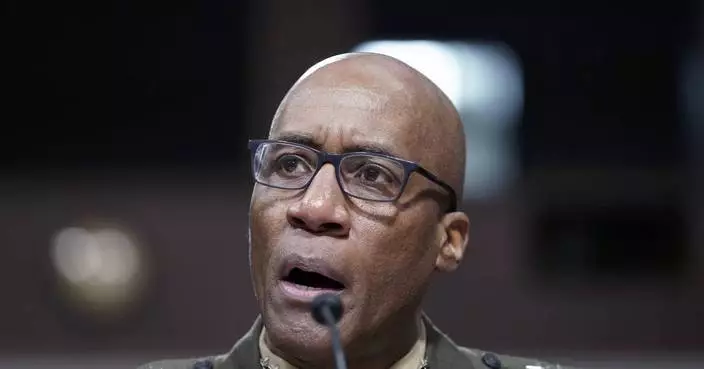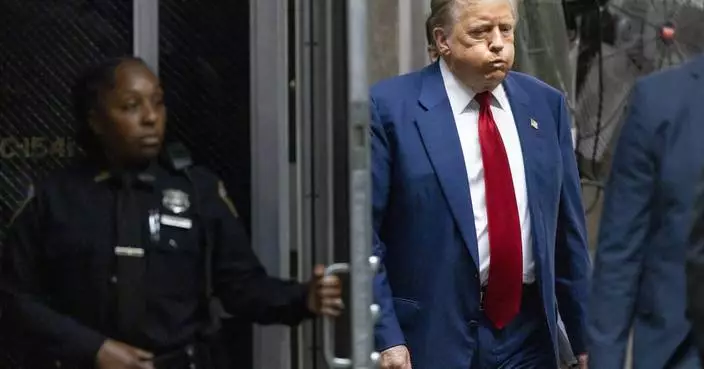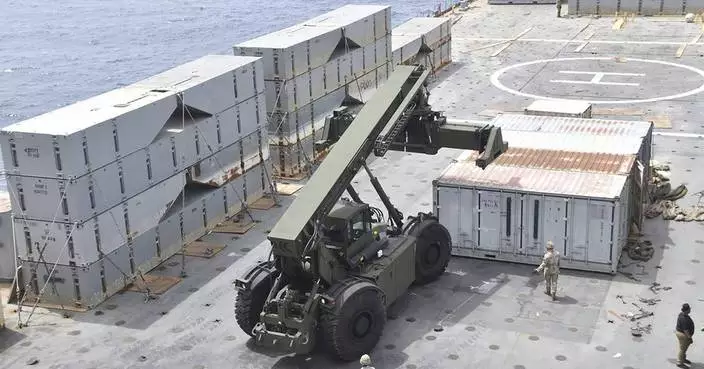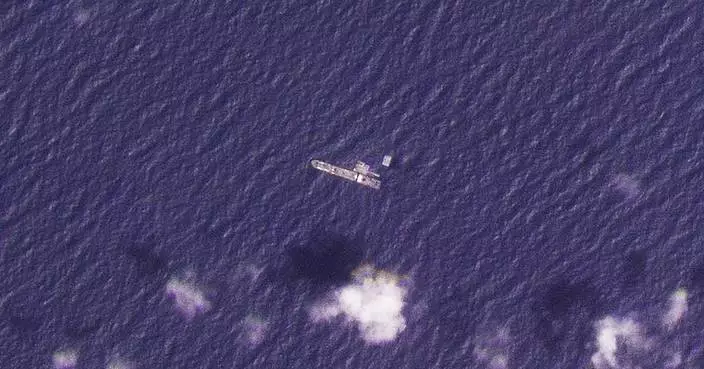A California couple who shackled some of their 13 children to beds and starved them pleaded guilty Friday to torture and other abuse in a case dubbed a "house of horrors."
David and Louise Turpin pleaded guilty Friday in Riverside County Superior Court to 14 counts that included abusing minor and adult children and imprisoning them in their house that appeared to be neatly kept from the outside in a modest subdivision.
Sentencing was scheduled for April 19.
The couple was arrested in January 2018 when their 17-year-old daughter called 911 after escaping from the family's home in the city of Perris, southeast of Los Angeles.
The children, who ranged in age from 2 to 29 at the time, were severely underweight and hadn't bathed for months and the house reeked of human waste.
Investigators said some of the children had stunted growth and wasted muscles and described being beaten, starved and put in cages.
In a recording of the 911 call played in court last year, the girl who escaped said two younger sisters and a brother were chained to their beds and she couldn't take it any longer.
"They will wake up at night and they will start crying and they wanted me to call somebody," she said in a high-pitched voice. "I wanted to call y'all so y'all can help my sisters."
The intervention by authorities marked a new start for the 13 Turpin offspring who lived in such isolation that some didn't even understand the role of the police when they arrived at the house.
Two girls, 11 and 14, had been hastily released from their chains when police showed up, but a 22-year-old son remained shackled.
The young man said he and his siblings had been suspected of stealing food and being disrespectful, a detective testified. The man said he had been tied up with ropes at first and then, after learning to wriggle free, restrained with increasingly larger chains on and off over six years.
Authorities said the children were deprived of food and things other kids take for granted, such as toys and games, and were allowed to do little except write in journals.
An investigator testified that some suffered from severe malnutrition and muscle wasting, including an 11-year-old girl who had arms the size of an infant. The 17-year-old who had difficulty pronouncing some words and spoke like a much younger child.
The kids were rarely allowed outside, though they went out on Halloween and traveled as a family to Disneyland and Las Vegas, investigators said. The children spent most of their time locked in their rooms except for limited meals or using the bathroom.
All the children were hospitalized immediately after they were discovered. Riverside County authorities then obtained temporary conservatorship over the adults.
UNITED NATIONS (AP) — Russia has circulated a U.N. resolution calling on all countries to take urgent action to prevent putting weapons in outer space “for all time” a week after it vetoed a U.S.-Japan resolution to stop an arms race in space.
The Russian draft resolution, obtained Wednesday by The Associated Press, goes further than the U.S.-Japan proposal, not only calling for efforts to stop weapons from being deployed in outer space but for preventing “the threat or use of force in outer space,” also “for all time.”
It says this should include deploying weapons “from space against Earth, and from Earth against objects in outer space.”
Russia’s U.N. Ambassador Vassily Nebenzia told the Security Council when he vetoed the U,S.-Japan draft that it didn’t go far enough in banning all types of weapons in space.
The vetoed resolution focused solely on weapons of mass destruction including nuclear arms, and made no mention of other weapons in space.
It would have called on all countries not to develop or deploy nuclear arms or other weapons of mass destruction in space, as banned under a 1967 international treaty that the U.S. and Russia ratified, and to agree to the need to verify compliance.
Before the U.S.-Japan resolution was put to a vote on April 24, Russia and China proposed an amendment that would call on all countries, especially those with space capabilities, “to prevent for all time the placement of weapons in outer space, and the threat of use of force in outer spaces.”
The vote was 7 countries in favor, 7 against, and one abstention and the amendment was defeated because it failed to get the minimum 9 “yes” votes in the 15-member Security Council required for adoption.
U.S. Ambassador Linda Thomas-Greenfield told the council after the vote that Russian President Vladimir Putin has said Moscow has no intention of deploying nuclear weapons in space.
“Today’s veto begs the question: Why? Why, if you are following the rules, would you not support a resolution that reaffirms them? What could you possibly be hiding,” she asked. “It’s baffling. And it’s a shame.”
Putin was responding to White House confirmation in February that Russia has obtained a “troubling” anti-satellite weapon capability, although such a weapon is not operational yet.
Russia’s U.N. Ambassador Vassily Nebenzia said after casting the veto that the U.S.-Japan resolution cherry picked weapons of mass destruction.
He said much of the U.S. and Japan’s actions become clear “if we recall that the U.S. and their allies announced some time ago plans to place weapons … in outer space.”
Nebenzia also accused the U.S. of blocking a Russian-Chinese proposal since 2008 for a treaty against putting weapons in outer space.
Thomas-Greenfield accused Russia of undermining global treaties to prevent the spread of nuclear weapons, irresponsibly invoking “dangerous nuclear rhetoric,” walking away from several of its arms control obligations, and refusing to engage “in substantive discussions around arms control or risk reduction.”
Much of the Russian draft resolution is exactly the same as the U.S.-Japan draft, including the language on preventing an arms race in space.
It calls on all countries, especially those with major space capabilities, “to contribute actively to the objective of the peaceful use of outer space and of the prevention of an arms race in outer space.”
Thomas-Greenfield said the world is just beginning to understand “the catastrophic ramifications of a nuclear explosion in space.”

FILE - U.S. Ambassador to United Nations Linda Thomas-Greenfield speaks on Thursday, April 18, 2024, in Tokyo. The U.N. Security Council is set to vote Wednesday, April 24, 2024, on a resolution announced by Thomas-Greenfield, calling on all nations to prevent a dangerous nuclear arms race in outer space. It is likely to be vetoed by Russia. (AP Photo/Eugene Hoshiko, Pool, File)










